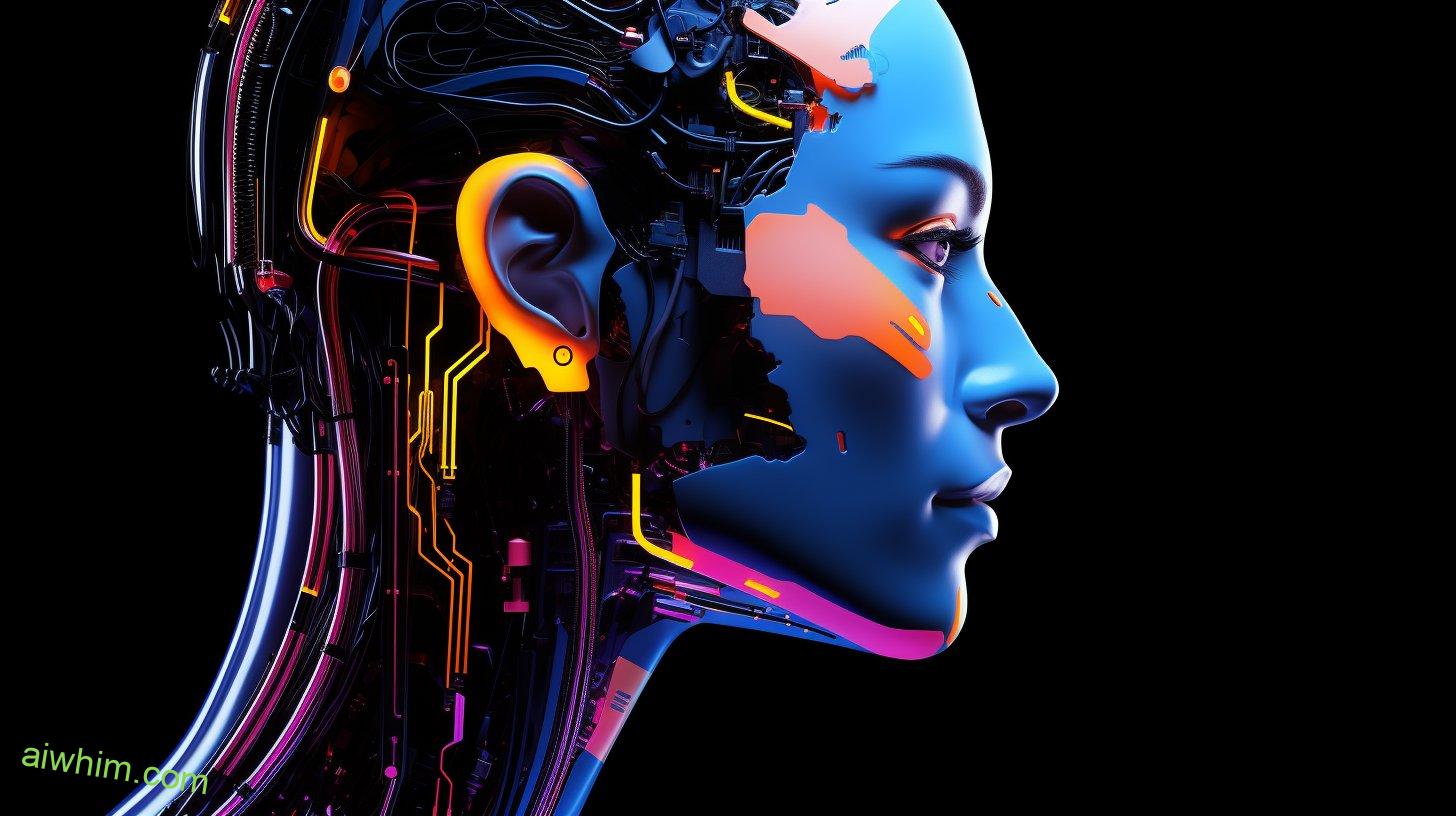Did you know that by 2030, up to 800 million jobs could be replaced by automation and artificial intelligence (AI)? This is not just a futuristic possibility – it’s happening now in industries from manufacturing to healthcare. And credit analysis is no exception.
As more financial institutions turn towards AI for risk assessment and decision-making, the question on your mind may be: will AI take your job as a credit analyst? As an individual who values freedom and autonomy in their career, this question is undoubtedly concerning. However, before jumping to conclusions, it’s important to understand the role of AI in finance and the unique challenges facing credit analysis.
In this article, we’ll explore the pros and cons of using AI for credit analysis, how it can assist in risk assessment, and strategies for thriving in a changing landscape. So let’s dive into the world of finance and see what lies ahead for credit analysts like you.
Key Takeaways
- AI has the potential to automate risk assessment and decision-making processes in credit analysis, improving accuracy and efficiency.
- Although AI-powered risk assessment can revolutionize the lending industry, it’s important to weigh the pros and cons and explore how AI can assist with risk assessment rather than replace human involvement altogether.
- Human analysts still play a crucial role in interpreting data and making informed decisions about lending practices. Skilled analysts are essential in providing a comprehensive and nuanced understanding of creditworthiness of individuals and businesses.
- Ethical considerations and data privacy concerns need to be addressed when using AI in credit analysis. Companies need to ensure that their algorithms are transparent and unbiased.

The Rise of AI in Finance
You might be feeling uneasy about the rise of AI in finance and whether it’ll replace you as a credit analyst. The truth is, AI applications are already being used by many financial institutions to automate benefits like risk prediction accuracy and fraud detection.
Machine learning capabilities have enabled machines to learn from large amounts of data, allowing for faster and more accurate decision-making processes. While this industry disruption may seem daunting at first, it’s important to remember that AI is not meant to replace humans entirely.
Instead, it’s meant to complement human intelligence by taking on repetitive tasks and providing insights that can help streamline processes. Understanding the role of AI in credit analysis can help you stay ahead of the curve and ensure your skills remain relevant in an ever-changing job market.

Understanding Credit Analysis
As you’re learning about the process of evaluating financial information for lending purposes, it becomes clear how critical it is to have a deep understanding of credit analysis. Credit analysis involves assessing the risk associated with lending money to an individual or business.
This includes analyzing financial statements, assessing creditworthiness, and determining loan underwriting processes. One important aspect of credit analysis is credit scoring. Credit scoring involves using statistical models to assign a score based on the borrower’s credit history and other factors.
The higher the score, the more likely they are to repay their debt in full and on time. While AI can help streamline this process, human analysts still play a crucial role in interpreting data and making informed decisions about lending practices. When it comes to understanding credit analysis, it’s important to recognize that while AI technology is advancing rapidly in finance industries, there will always be a need for human expertise and judgement in making complex decisions about lending practices.

The Role of Human Analysts
Don’t underestimate the importance of human analysts in lending decisions – their expertise and judgement play a crucial role in assessing risk and ensuring responsible lending practices. While machine learning algorithms can analyze large amounts of data and provide valuable insights, they lack the human intuition that is necessary for understanding complex situations or identifying potential red flags.
As a credit analyst, your job security is still intact as industry trends show that companies still value the experience and soft skills that only humans possess. In fact, some experts argue that the rise of artificial intelligence in credit analysis may actually create more learning opportunities for human professionals. By automating repetitive tasks such as data entry or document processing, AI technology can free up time for analysts to focus on more complex tasks such as developing relationships with clients or interpreting financial statements.
So while it’s important to stay aware of industry changes, there’s no need to fear that AI will take over your job completely – instead, embrace the potential benefits it can bring to the field.

The Pros and Cons of AI in Credit Analysis
There are both advantages and disadvantages to implementing artificial intelligence in the credit analysis process, as evidenced by a recent case study.
On one hand, AI can greatly improve accuracy and reduce bias in decision-making processes. By analyzing vast amounts of data, AI can identify patterns and make predictions that human analysts may overlook or not have access to. This allows for more objective lending decisions that are less influenced by subjective factors such as personal relationships or unconscious biases.
However, there are also potential downsides to relying solely on AI for credit analysis. One major concern is job security for human analysts who may be replaced by machines. Additionally, while AI can increase efficiency and standardization in lending practices, it may not always allow for the customization and flexibility needed in certain situations. There is also the possibility of disruption during the integration process as companies work to implement new technology and adjust their workflow accordingly.
With these factors in mind, it’s important to carefully weigh the pros and cons before fully embracing AI in credit analysis processes. As you consider how AI could impact your role as a credit analyst, it’s worth exploring how this technology can assist with risk assessment rather than replace human involvement altogether.

How AI Can Assist in Risk Assessment
Discover how AI can help enhance risk assessment processes and lead to more accurate lending decisions. Machine learning algorithms, risk modeling techniques, and predictive analytics are just a few of the tools that AI brings to the table.
By analyzing vast amounts of data, AI is able to provide data-driven insights into consumer behavior that can be used to make better lending decisions. Automated decision-making is another aspect of AI that can assist in risk assessment.
With automated decision-making systems, lenders can quickly assess a borrower’s creditworthiness and determine if they’re eligible for a loan or not. This not only streamlines the lending process but also reduces human bias in decision making.
Overall, AI-powered risk assessment has the potential to revolutionize the lending industry by providing faster, more accurate lending decisions based on data-driven insights. As you learn about how AI can assist in risk assessment, it’s important to also consider its benefits in fraud detection.

The Benefits of AI-Powered Fraud Detection
The advantages of AI-driven fraud detection are as clear as day, like a well-lit path in the dark. With automation, the speed at which fraudulent activities are detected and addressed is significantly higher. Efficiency and accuracy levels also increase tremendously with AI’s ability to handle large amounts of data and detect patterns that would be impossible for humans to identify.
This not only saves time but also enhances productivity by allowing credit analysts to focus on other tasks that require human expertise, such as risk mitigation and improved decision making. The precision of AI-powered fraud detection ensures fewer false positives or negatives, a reduction in manual reviews, and ultimately better customer experiences.
With these benefits in mind, it’s no wonder that many financial institutions have started incorporating AI into their fraud detection processes. As you consider the potential for AI in investment management, it’s important to keep in mind how its capabilities can aid in detecting fraudulent activity.
By freeing up resources previously used for manual fraud detection efforts, AI can allow credit analysts more time to focus on assessing risks associated with investment decisions. This shift could help mitigate losses due to fraudulent activities while simultaneously improving overall portfolio performance.

The Potential for AI in Investment Management
Utilizing AI technology in investment management has the potential to revolutionize portfolio performance and enhance risk assessment capabilities. With continuous advancements in AI, firms can implement predictive models that analyze large amounts of data to identify investment opportunities and optimize their portfolios. By harnessing the power of machine learning algorithms, investors can gain a deeper understanding of market trends and predict future movements with greater accuracy.
Moreover, AI can aid in effective risk management by identifying potential threats and assessing their impact on investments. Through real-time analysis of market data, AI-powered systems can detect anomalies and alert investors to take action before any harm is done. This not only helps mitigate risks but also reduces losses significantly while increasing profitability.
However, as much as there are benefits to utilizing AI in investment management, there are limitations that will be discussed further when we talk about the potential for AI in credit analysis.

The Limitations of AI in Credit Analysis
You might encounter some challenges when using AI for credit analysis as it has limitations that could affect its accuracy and reliability. One of the main limitations is accuracy tradeoffs, as AI models may not always be able to accurately predict creditworthiness due to incomplete or low-quality data.
Ethical considerations also come into play, such as potential biases in the data used to train the AI model or unintended consequences of relying solely on automated decision-making.
Another challenge is interpretability, as complex machine learning algorithms may not be easily understandable to humans. This can make it difficult for credit analysts to explain their decisions and provide context when needed.
Additionally, data quality can also impact the effectiveness of AI in credit analysis, as inaccurate or outdated information can lead to incorrect predictions.
Overall, while AI can provide valuable insights and improve efficiency in credit analysis processes, it should not be relied on solely without considering these limitations and incorporating human intuition and expertise into decision-making.
As you consider the role of AI in credit analysis, it’s important to recognize the importance of intuition in decision-making. While technology can assist with analyzing large amounts of data quickly and efficiently, there are certain nuances that require a human touch – such as understanding individual circumstances and assessing risk beyond numerical metrics alone.
By combining both technological advancements and human expertise, you can make more informed decisions that take into account both quantitative factors and qualitative insights.

The Importance of Intuition in Decision-Making
Don’t underestimate the power of gut instincts when it comes to making important decisions, even in the world of credit analysis. Intuition vs data is a constant debate among analysts, but it’s important to recognize that algorithms can only provide so much insight. Human judgment and emotional intelligence are invaluable assets in this field, as they allow for a more holistic approach to analyzing creditworthiness.
Here are four reasons why trusting your gut feeling is just as important as relying on algorithms:
- Emotional intelligence enables you to pick up on subtle cues that data may overlook.
- Cognitive biases can impact decision-making, but intuition allows for a fresh perspective.
- Sometimes the numbers don’t tell the whole story, and human judgment can fill in those gaps.
- Relying solely on algorithms could lead to missed opportunities or inaccurate assessments.
While technology has certainly made strides in improving efficiency and accuracy in credit analysis, there will always be a need for skilled credit analysts who possess both technical expertise and emotional intelligence.

The Need for Skilled Credit Analysts
Skilled credit analysts are essential in providing a comprehensive and nuanced understanding of the creditworthiness of individuals and businesses. Despite the rise of artificial intelligence (AI) in various industries, human expertise remains irreplaceable in this field.
The industry demand for skilled workforce has remained steady over the years, with many financial institutions relying on credit analysts to make informed lending decisions. This need for human expertise has led to an increase in training programs that aim to equip aspiring credit analysts with the necessary skills and knowledge.
With job security being a major concern for many professionals today, pursuing a career as a credit analyst provides stability and growth opportunities. As AI continues to advance, it’s important for credit analysts to remain adaptable by continuously updating their skills and knowledge through these training programs.
As you consider the importance of skilled credit analysts in today’s economy, it is also worth noting how AI can enhance efficiency in credit analysis. Through its ability to process vast amounts of data quickly and accurately, AI can assist credit analysts with tasks such as risk assessment and fraud detection. However, it’s important to remember that while AI may enhance efficiency, it cannot replace the value of human expertise when making critical lending decisions.

How AI Can Enhance Efficiency in Credit Analysis
You may be wondering if your job as a credit analyst is under threat due to advances in technology. However, it’s important to note that the need for skilled analysts won’t disappear anytime soon. In fact, AI can actually enhance efficiency in credit analysis and make your job easier.
AI powered underwriting can automate the credit scoring process and save you time on manual tasks like data entry and calculations. Predictive analytics and machine learning models can also improve accuracy and help you make better data driven decisions. But don’t worry – these technologies are meant to assist you, not replace you entirely.
Imagine being able to analyze data faster than ever before. Picture having more accurate predictions at your fingertips. Think about how much easier it would be to make informed decisions with less guesswork.
With AI enhancing efficiency in credit analysis, you’ll have more freedom to focus on higher-level tasks like developing strategies and building relationships with clients. Plus, as technology continues to evolve, there will always be a need for knowledgeable professionals who can interpret the results of automated processes.
As we look towards the future of finance, it’s clear that technology will play an increasingly important role. But rather than being threatened by this change, embrace it as an opportunity to learn new skills and stay ahead of the curve.

The Role of Technology in the Future of Finance
Get ready to ride the wave of technological innovation in finance, as it promises to revolutionize the industry with its lightning-fast processing power and revolutionary solutions. One area where technology has already made significant strides is in lending decisions. With AI algorithms and machine learning models, lenders can now make faster, more accurate credit assessments than ever before.
But digital transformation in finance doesn’t stop there. Automation is also making its way into underwriting, streamlining the process and reducing costs for lenders while also improving accuracy. And machine learning is being used in risk management, helping banks better identify potential fraud and financial crimes.
All of these innovations are changing the face of credit analysis, but what does this mean for you? How will these advancements affect your role as a credit analyst?
We’ll explore that next by discussing the impact fintech is having on credit analysis and why human touch still matters.

The Human Touch in Finance
Don’t underestimate the importance of the human touch in finance, as technology continues to transform the industry. While AI and automation can streamline processes and make calculations faster, they still lack emotional intelligence and cannot replace the value of a human connection.
As a credit analyst, your personalized approach to each client’s unique financial situation is paramount for building trust and creating lasting relationships. To excel in this field, it’s crucial to have strong communication skills that allow you to understand clients’ needs and explain complex financial concepts in an approachable manner. This requires not only technical expertise but also empathy and emotional intelligence.
By taking a client-focused approach, you can build stronger relationships that lead to better outcomes for both parties involved. Remember: while technology may be able to assist with certain tasks, it’s ultimately up to you as a credit analyst to provide the personal touch that sets you apart from automated processes.
As technology continues its rapid evolution, it’s important to adapt and stay ahead of the curve. In the next section, we’ll discuss some of the challenges facing credit analysts as they navigate this changing landscape.

The Challenges of Adapting to AI
As AI technology advances, the role of a credit analyst faces challenges in adapting to the changing landscape. Adapting to new technologies can be difficult for professionals who’ve been working with traditional methods for years.
With AI’s ability to analyze vast amounts of data at a much faster pace than humans, credit analysts may find themselves struggling to keep up. This presents adapting challenges not only for individual analysts but also for the industry as a whole.
However, there are reskilling opportunities available that can help credit analysts learn how to work alongside AI and utilize its abilities rather than fear job displacement. While this transition may bring ethical considerations into question, it’s important for credit analysts to remain informed and aware of these issues while preparing themselves and their workforce readiness for a future where AI plays an increasing role in financial analysis.
As we move forward, strategies for thriving in a changing landscape will become crucial in ensuring success within the industry.

Strategies for Thriving in a Changing Landscape
You can adapt to the changing landscape by exploring new technologies and learning how they can enhance your work as a credit analysis professional. With technological innovation at an all-time high, there are countless tools available that can improve efficiency and accuracy in your work.
For instance, automated decision-making systems can help you process large amounts of data quickly, reducing human error and freeing up time for more complex tasks. Additionally, AI-powered chatbots can assist with customer service inquiries, allowing you to focus on more pressing issues.
To stay relevant in this ever-changing industry, it’s important to continuously learn and adapt. By staying up-to-date on the latest trends and developments in credit analysis technology, you’ll be better equipped to meet the demands of clients and outperform competitors.
However, don’t forget about the importance of human interaction – while automation is beneficial for certain tasks, building relationships with customers remains a vital aspect of the job.
By enhancing your skillset through continuous learning and adaptation strategies, you’ll be able to thrive in a world where AI is becoming increasingly prevalent without sacrificing the human touch that makes your work valuable.

The Importance of Continuous Learning
If you want to stay ahead in the game, it’s crucial that you keep learning and expanding your knowledge base. Continuous learning is a vital aspect of professional development, especially in industries like credit analysis where technology is rapidly changing the landscape. Upskilling opportunities are available everywhere, from online courses to webinars and workshops.
Staying relevant in credit analysis requires adapting to change and staying up-to-date with technological advancements. As AI continues to evolve, there is no doubt that it will transform the way credit analysts work. However, don’t let this discourage you from pursuing a career in this field.
Rather than fearing job loss due to automation, focus on continuous learning and building your skills as an analyst to remain valuable in the marketplace.

The Future of Credit Analysis and AI
One must consider the impact of emerging technologies on the future of the credit analysis industry. AI’s impact on credit analysis is already being felt, with automated systems that can analyze large amounts of data more accurately and efficiently than humans. This means that many routine tasks currently performed by credit analysts will become automated, leading to a reduction in the number of jobs available in the industry.
However, there are ethical considerations and data privacy concerns associated with using AI in credit analysis. There’s a risk that algorithms could be biased or discriminatory, leading to unfair lending practices. As such, it’ll be important for companies to ensure that their algorithms are transparent and unbiased.
Furthermore, training requirements for those working in credit analysis will need to evolve as technology becomes increasingly prevalent in the industry. While these changes may lead to job losses for some credit analysts, there are also opportunities for individuals who have expertise in both technology and finance.
Overall, while the future job prospects for credit analysts may be uncertain due to advances in AI technology, those who continuously learn and adapt will have an edge over their competition.

Conclusion
As you stand at the cusp of a changing landscape, it’s natural to wonder what role you’ll play in the future of credit analysis. Will AI take your job? The answer isn’t so simple.
While AI has the potential to automate much of the analytical process, it can’t replace the human touch that lies at the heart of credit analysis.
Instead, think of AI as a tool that can help you do your job better and faster. Like a hammer in the hands of a skilled carpenter, AI can assist you in building stronger financial models and identifying risks that might otherwise go unnoticed.
Embrace this technology with an open mind and a willingness to learn, and you’ll find yourself thriving in a world where change is constant but opportunity abounds.







